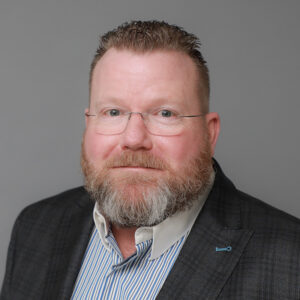
By Michael Walsh, Vice President, Elevator Construction Consultants (ECC)
In construction, success is often measured in percent complete, square footage delivered, or inspections passed. But I believe the more valuable lessons come from what doesn’t go according to plan. At Elevator Construction Consultants (ECC), we’ve learned that failure, when approached with transparency and purpose, is one of the most powerful drivers of growth. In fact, we’ve built a business around it.
Over the past seven years, ECC has overseen 291 final elevator inspections, passing 97% on the first attempt. That’s an impressive number, and yes, we’re proud of it. But the true story, the one that reshaped our operations and strategy, isn’t about the 282 inspections we passed. It’s about the nine we didn’t.
The Cost of a Single Failure
One failure I remember vividly came from a simple seven-story office project. Two elevators. One inspection. One very expensive setback. Lighting didn’t meet code, there were sump pump issues, and the pit penetrations hadn’t been addressed. The cost? Between crew delays, re-inspection fees, and potential damages, it landed around $30,000. Others’ failures can be multiples of this lesson learned.
However, the real impact wasn’t just financial. It was reputational, emotional, and cultural. That failure sparked emergency meetings, apologies to stakeholders, and a personal reckoning with what went wrong. Despite that burn, that sense of professional pride colliding with real-world consequence, this $30,000 failure was where some of ECC’s most meaningful work began.

Making Failure Matter
At ECC, we don’t hide our mistakes. We dissect them. Every failed inspection triggers what we call a Failure Autopsy—a root cause analysis where blame is off the table and learning is mandatory. Using methods like the 5 Whys, we track technical issues back to process breakdowns, training gaps, or faulty assumptions. It’s not about who caused the failure, it’s about understanding why our system allowed it to happen.
Through these postmortems, we’ve identified blind spots in our training, overreliance on individuals, and complacency around pre-inspections. We’ve also uncovered powerful insights that have reshaped how we structure teams, how we equip project managers, and how we maintain accountability across the board.

Turning Setbacks into Strategy
The cost of our nine failures (roughly $270,000) is now viewed as an investment in R&D. The improvements sparked by those moments have helped prevent future errors, strengthened client relationships, and created the foundation for ECC’s consulting services. They’ve even led to new revenue streams as we’ve expanded from inspection oversight into broader vertical transportation strategy and litigation consulting.
Perhaps most importantly, these failures helped redefine our company culture. At ECC, we’ve traded perfectionism for progress. We now reward the proactive identification of issues, not just success rates. We build psychological safety into our teams so they can report concerns without fear. We codify lessons into processes, checklists, and training materials to ensure our institutional memory is always evolving.
Redefining the Handshake
When I began my career, a handshake was a promise that nothing would go wrong. Today, I know better. Now, a handshake means that when things do go wrong, we will meet the moment with honesty, accountability, and action. We will investigate. We will improve. And we will emerge stronger and more capable for the next challenge.
That’s not a flaw in the process. That is the process.
The ROI of Getting It Wrong
It’s tempting to showcase only our successes, but the truth is, our ability to learn from failure has become ECC’s greatest competitive advantage. Clients don’t just hire us for our 97% pass rate. They trust us because we’ve built a battle-tested system to ensure those results. And when issues arise, they know exactly how we’ll respond.
At ECC, we’ve made it our mission to fail better, smarter, and less often. In doing so, we’ve built something far more resilient than a perfect record.
About Michael Walsh
Michael Walsh is Vice President of Elevator Construction Consultants and a recognized expert in vertical transportation with nearly 40 years of experience in the elevator and escalator fields. His career includes senior roles at LF Driscoll and Citywide Elevator Consultants, where he led complex modernization and construction projects nationwide. A certified elevator mechanic and National QEI Certified Elevator Inspector licensed in multiple states, Michael holds more than 20 certifications across various elevator systems. He also serves on four National ASME Code Committees, contributing directly to the development of industry safety and performance standards.
